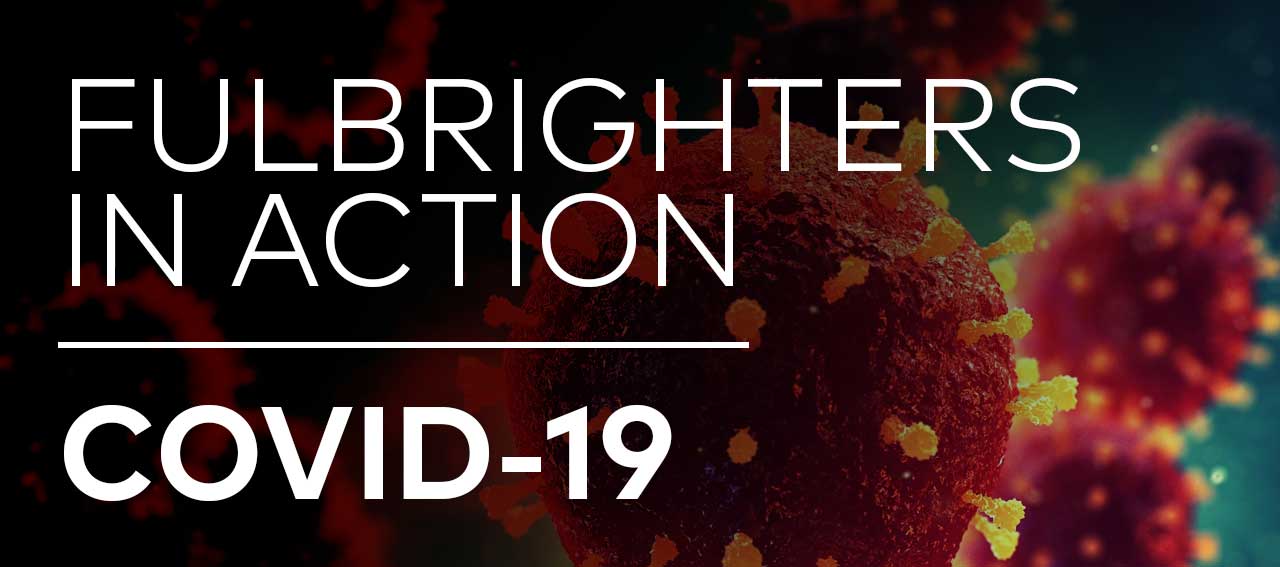Fulbrighters in Action Against COVID-19 – Dr Briony Swire-Thompson

Briony Swire-Thomson is a cognitive psychologist whose field of research is so new, she’s helping to write the map.
“You’re completely in the wild west.”
Swire-Thomson studies “fake news” – how it spreads, and why we find it so enticing. The Associate Research Scientist at Northeastern University’s Network Science Institute says its vital to help people separate “fact” from “fake” when it comes to the COVID-19 pandemic and the 2020 US election.
“One of the biggest differences between political disinformation and health [disinformation] is that the risk to people’s livelihoods and mortality is very real…we are only beginning to understand the ramifications.”
As the COVID-19 pandemic spread, governments have warned against ingesting bleach and dismissed as piffle a conspiracy theory that links the Coronavirus to 5G, including on Twitter:
COVID-19 does not spread via mobile networks or wireless technology. COVID-19 is spread through contaminated droplets by coughing or sneezing, or by contact with contaminated hands, surfaces or objects.
Find the facts: https://t.co/HbdohSPJs3 pic.twitter.com/WolbwTu46m
— NSW Health (@NSWHealth) May 11, 2020
But misinformation seems to spread as quickly as the virus. Social media giant Facebook reported that during the month of April, it placed warning labels on some 50 million pieces of misleading content.
Why do we fall for it? Swire-Thomson says one reason we’re susceptible is that we humans, like nature, hate a vacuum.
“People are notoriously bad at understanding, ‘well we just don’t know yet….’ A lot of mis- and disinformation has rushed in to fill that void.”
Swire-Thomson, who studied political misinformation as a Fulbright Scholar at MIT, says an astonishing 80% of misinformation can be traced back to 0.1% of people. “We call them supersharers,” she notes. This fake news ricochets around the internet, gaining traction and credibility, because we share it with our friends.
The good news? When confronted with corrections to misinformation, Swire-Thomson says people will accept it, particularly if the correction provides an alternative explanation. “People updated their belief remarkably well.”
But there’s a catch.
“What we found was that didn’t change people’s voting intentions. People would acknowledge that these politicians were saying inaccurate statements but voting intentions would stay absolutely stable.”
She notes that this is true across the political spectrum.
Which might explain why Swire-Thomson’s 2019 article in Political Psychology about the 2016 US presidential election had the provocative title, “They Might Be a Liar, but They’re My Liar.”
 Sara James is on the Board of Fulbright Australia.
Sara James is on the Board of Fulbright Australia.
An Emmy award-winning journalist, she is also the author of An American in Oz and co-author of The Best of Friends.
Copyright © 2021 – Fulbright


 Facebook
Facebook Twitter
Twitter Linkedin
Linkedin Instagram
Instagram